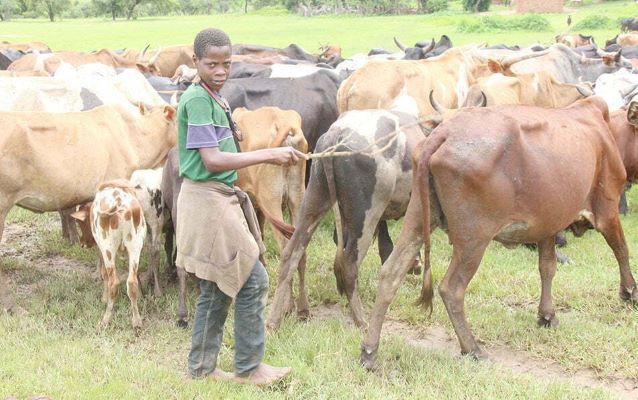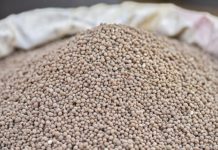By : Jeff Kapembwa
Zambia’s quest to diversify and maximize agriculture potential has received donor support with a staggering US$1 billion earmarked for investment in dams, farming blocks, irrigation, livestock and fisheries under the revised Agriculture reform programme to be undertaken to avert food insecurity and remain the continent’s main exporter of food varieties, Situmbeko Musokotwane has told lawmakers.
Zambia has projected to utilize K167.3 billion (US$11.2 billion) in the 2023 fiscal year-US$5 billion less what it sought to spend last year, arguably to reform the economy which has come under devastating effects of COVID 19, debt contraction and climatic change effects-prompting the Government to consider using agriculture an economic springboard to help meet the continent’s food needs amid threatening threats to food.
Themed: “Stimulating Economic Growth for improved livelihoods”, Minister Musokotwane told lawmakers that a staggering US$1 billion would be raised for agriculture production-having secured US$300 million from the World Bank for the development of farm blocks in Central Province, Copperbelt Luapula Provinces under concessional financing with a maturity period of 30 years and under a grace period of 5 years.
Noting the underperformance of the sector in the 2021/2022 agricultural season which affected production of maize, rice, sorghum and cassava caused by the late onset of rains as well as drought and flash floods in some parts of the country, Minister Musokotwane calls for urgent redress.
The funding would be invested in a cross section of sub-sectors including livestock and fisheries which remain the main source of livelihood for the majority of our people and the largest employer of majority Zambians, generating the main source of foreign exchange.
Arguably, the finances will be used for irrigation development through the construction of 40 dams, 14 across the country over the medium term. In 2023, a total 16 dams will be constructed. To actualise the Chiansi Irrigation Scheme in Kafue District, Southern Zambia, the Government secured US $10 million from the African Development Bank (AfDB) to cover 600 hectares infield irrigation by smallholder farmers.
The financing will also be used to establish storage facilities and a youth skills development centre.
The project, when successful, will benefit over 12,000 people. Efforts are underway to improve agricultural productivity through comprehensive reforms. To increase crop productivity among small-scale farmers, Zambia is improving extension service delivery with the planned recruitment of 256 extension officers.
Additional officers will be recruited in 2023. Government will procure 1,623 extension kits, 1,000 tablets, 621 motorbikes and rehabilitate over 536 camp houses. A total, 1.5 million smallholder farmers will benefit through the extension services through physical visits and e-extension platforms.
Plans are underway to sustain farmer support through FISP in 2022/2023 farming season with the same strength as before. While supporting and providing FISP there are planned reforms to include extension service support; irrigation development; access to finance; support to value addition; and storage and logistics which will ensure better targeting and equity in the provision of subsidies and services.
Under a reviewed FISP dubbed: “Comprehensive Agriculture Support Programme” the Government seeks to heighten agriculture production the Government seeks to scrutinise the beneficiaries in detail and ensure only the targeted and deserving people receive subsidised fertilisers.
“this new approach is important as it will contribute to our national food security especially at a time like now when the global food supply is tight. It also helps to uplift many of our small-scale farmers who, in any case, produce most of our food. As we continue with FISP under the new programme, it is important that we understand its limitations in the development process.
With the tightness in the global food supplies arising from the war in the Ukraine, the world looks to parts of Africa with appropriate agronomical conditions to step in and grow more food for export and Zambia wants to be part of the paradigm shift and benefit from the expected demand with minister Musokotwa contending:
“Our Government has already secured market access to the European Union, United Arab Emirates, South Africa, and China for various crops and livestock such as cattle and goats.
Plans are afoot to revive the development of farm blocks which has in recent failed to meet the intended purpose since its inception a few years ago and ensure it does not fail and ultimately promote diversification, sustainability and jobs in the agrifood sector in the country, especially for exports under the US $300 million funding secured as part of the diversification plan.
It is envisaged farm blocks when developed will create thousands of jobs in agricultural production, in processing factories on site and in allied services who will be engaged at levels of engineers, technicians, agronomists, foremen, ordinary labour, accountants, and many others.
“The Government’s task in developing a farm block is to put in the key infrastructure like main access and internal roads, power reticulation, water development for irrigation where feasible and an administrative centre so that as many approvals as feasible are available on site.”
In the livestock sector, the Government seeks to up its production which showed signs of development last year.
The Production of milk, eggs, chicken, beef and pork had increased due to the increase in livestock population and improved animal husbandry practices. Notwithstanding the good performance, the sector experienced outbreaks of infectious diseases such as CBPP and African Swine Fever.
Government plans to enhance surveillance, prevention and control. Specific interventions will include the construction of biosecurity infrastructure on trunk roads and completion of laboratories.
Other interventions include establishment of an animal vaccine plant, promotion of veterinary public health and food safety and enhancement of animal health research and diagnostics.
Government further plans to develop a robust animal identification and traceability system and reduce stock theft experienced chiefly in rural parts of the country. The increased security on animal theft will heighten Zambia’s chances of increasing exports to various countries. /










[…] Source link […]
Comments are closed.